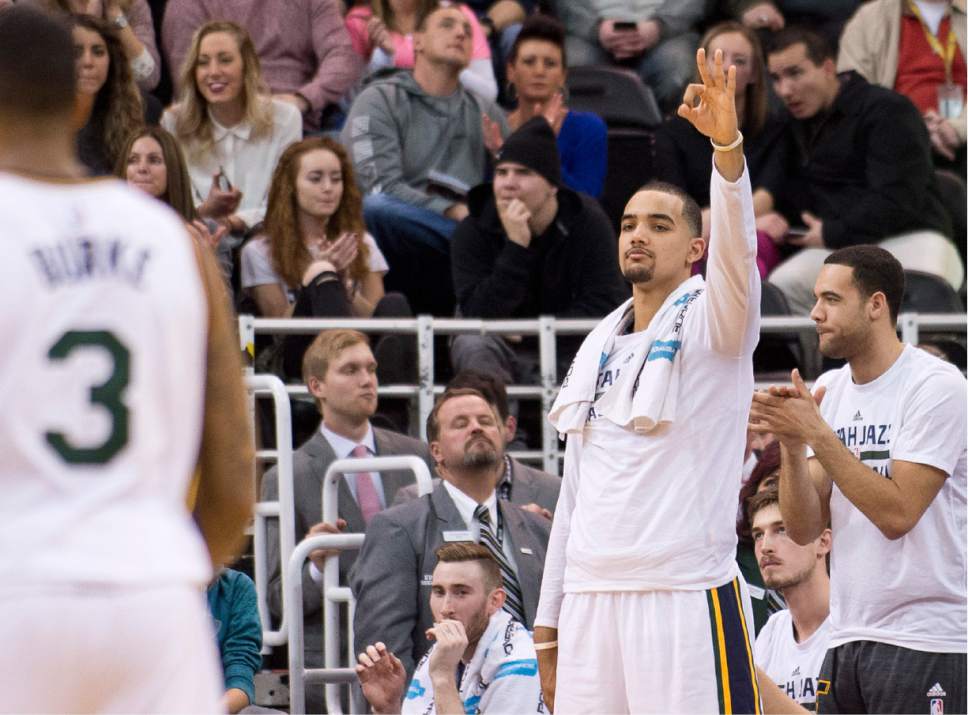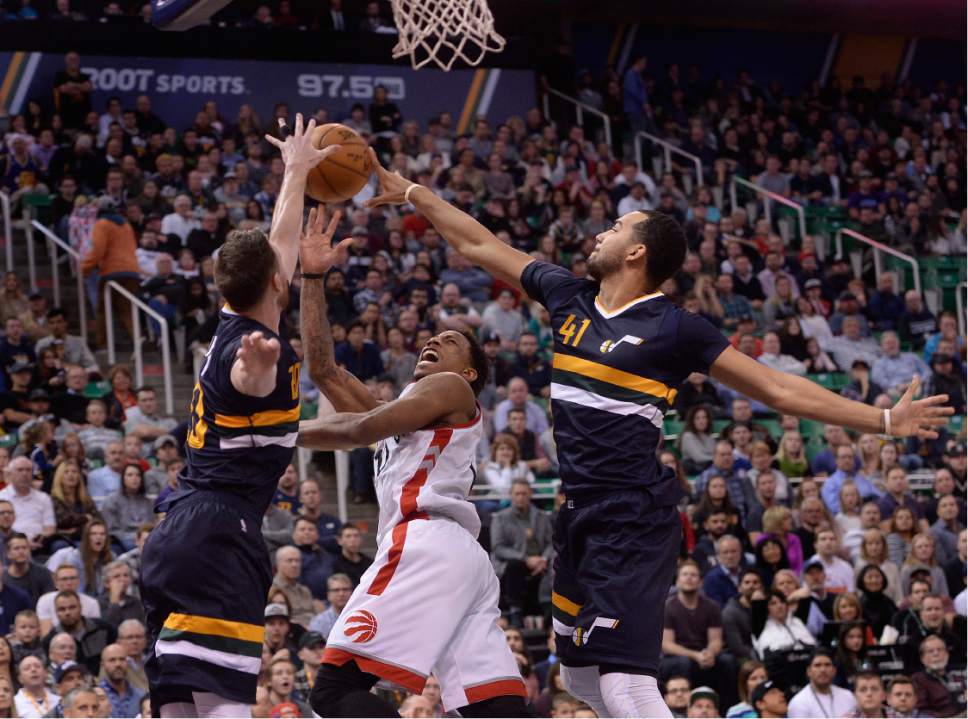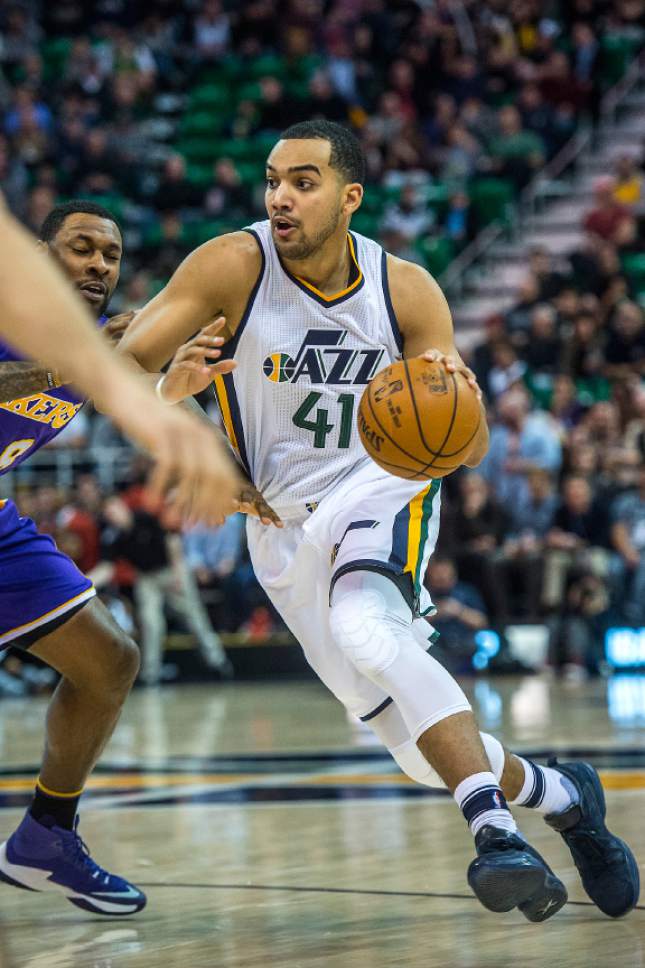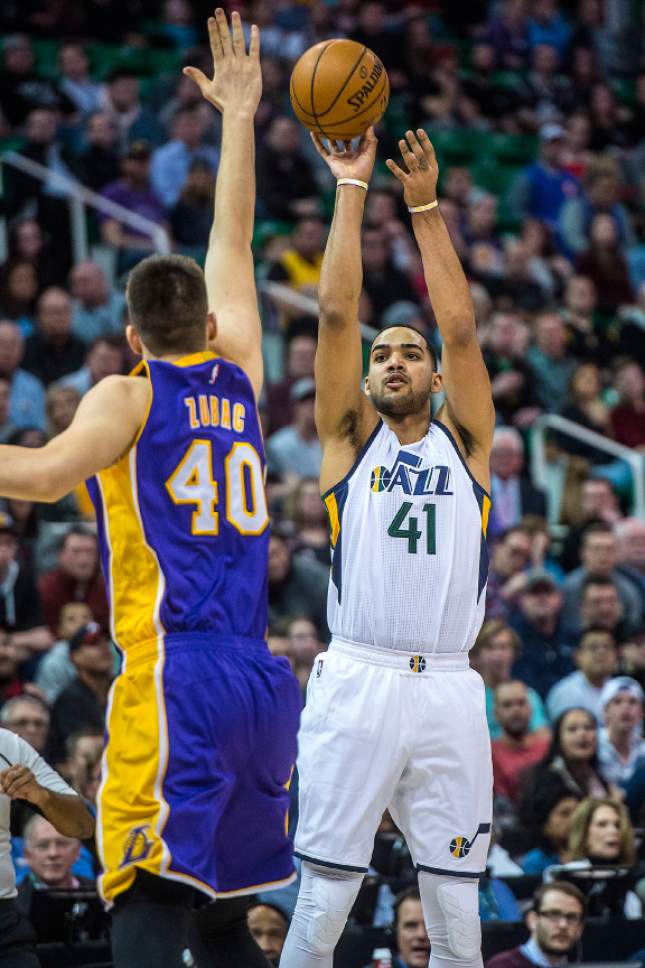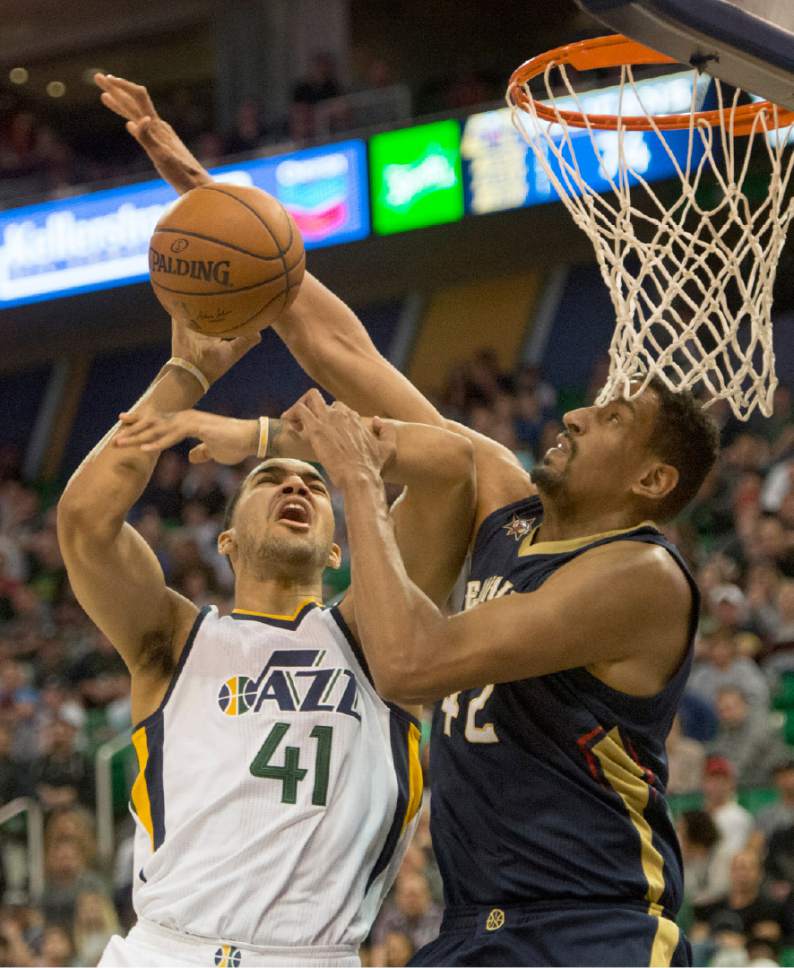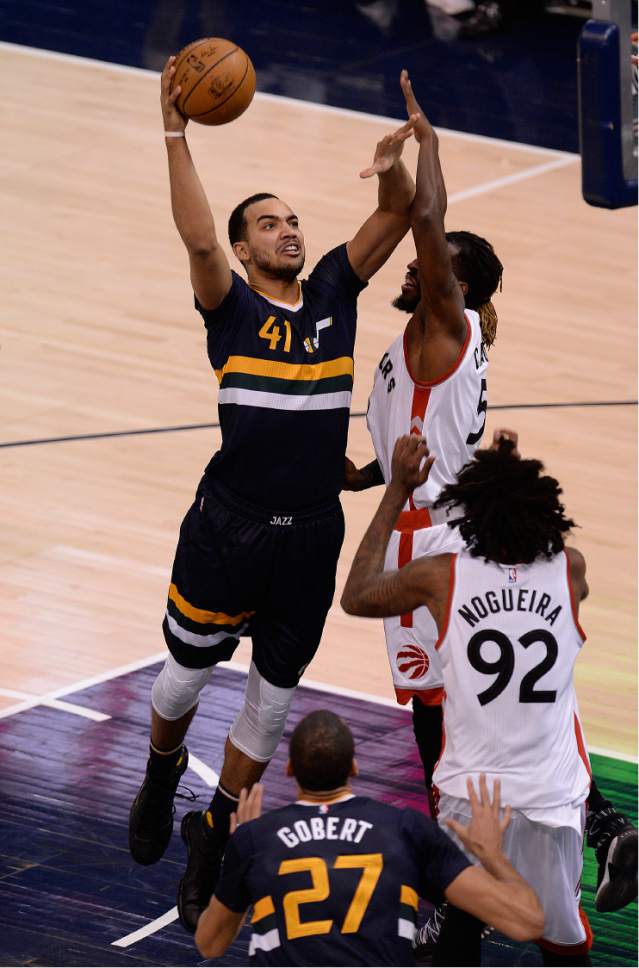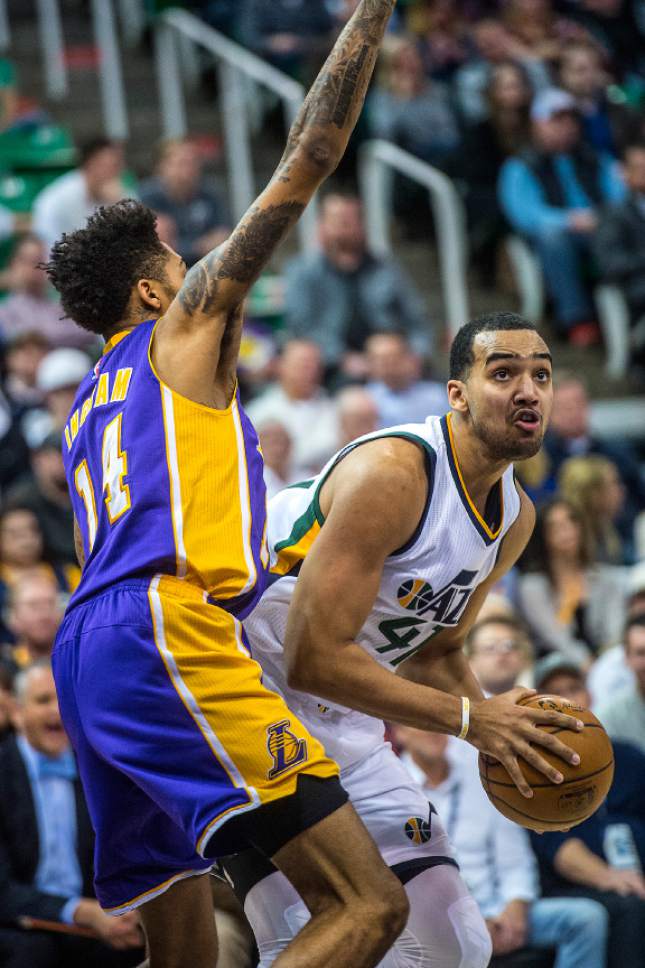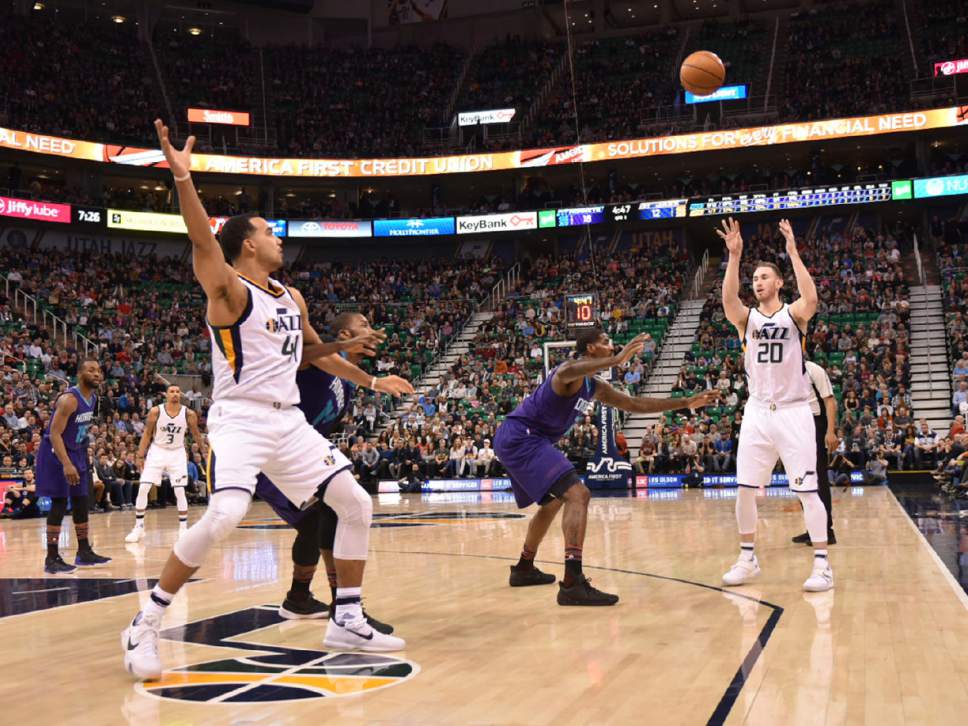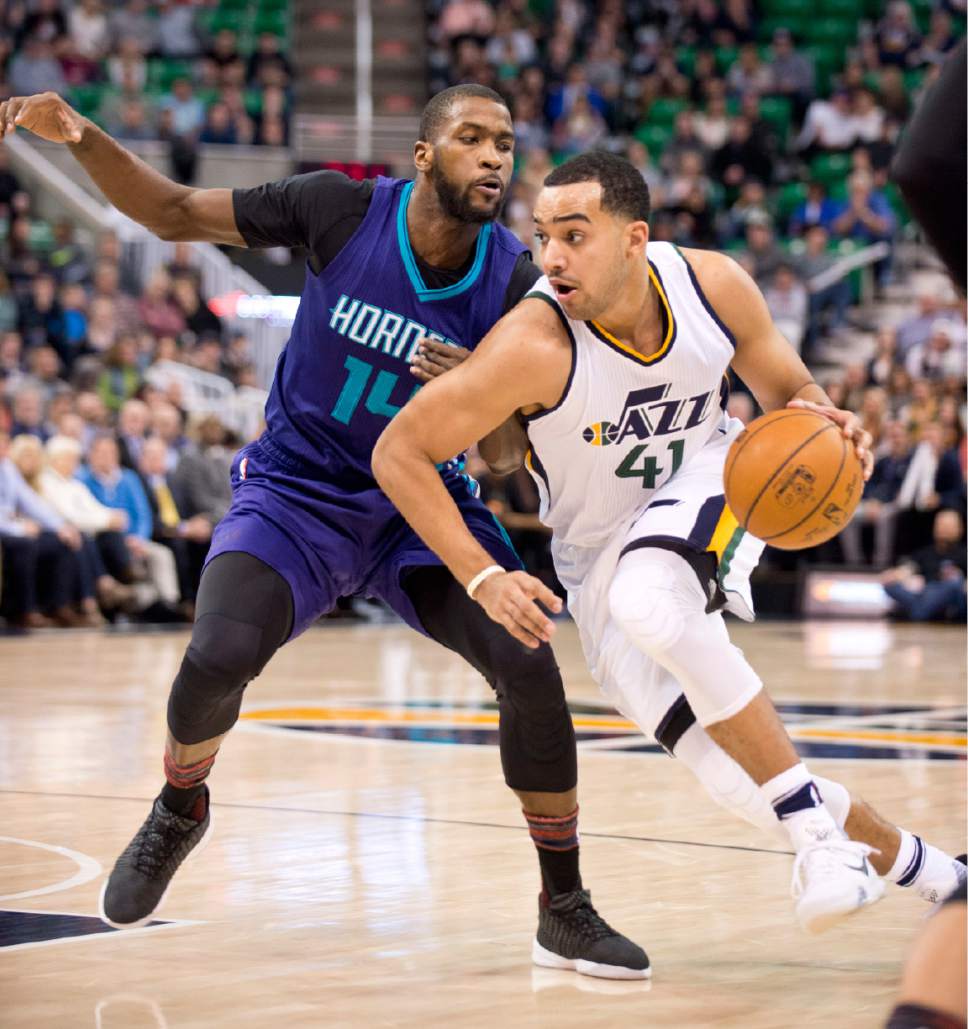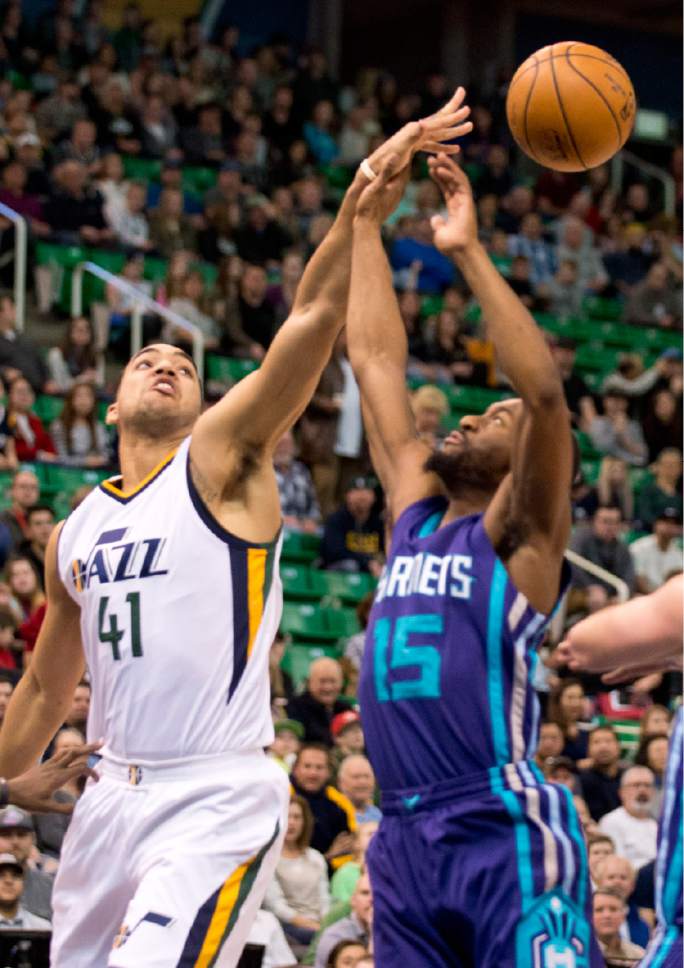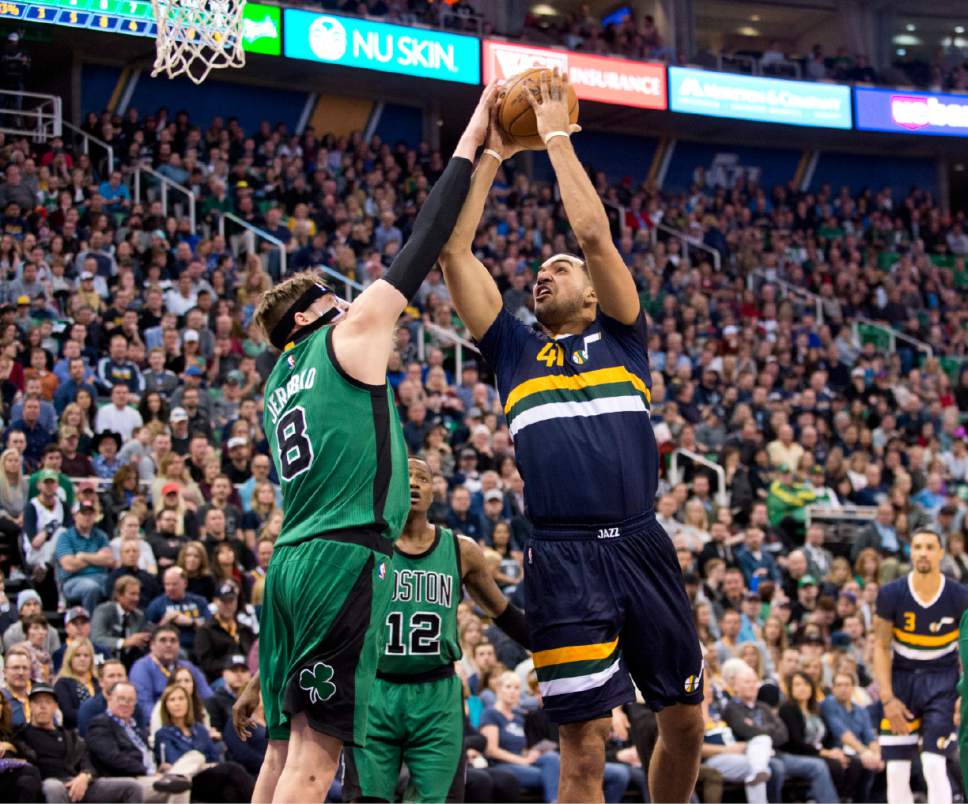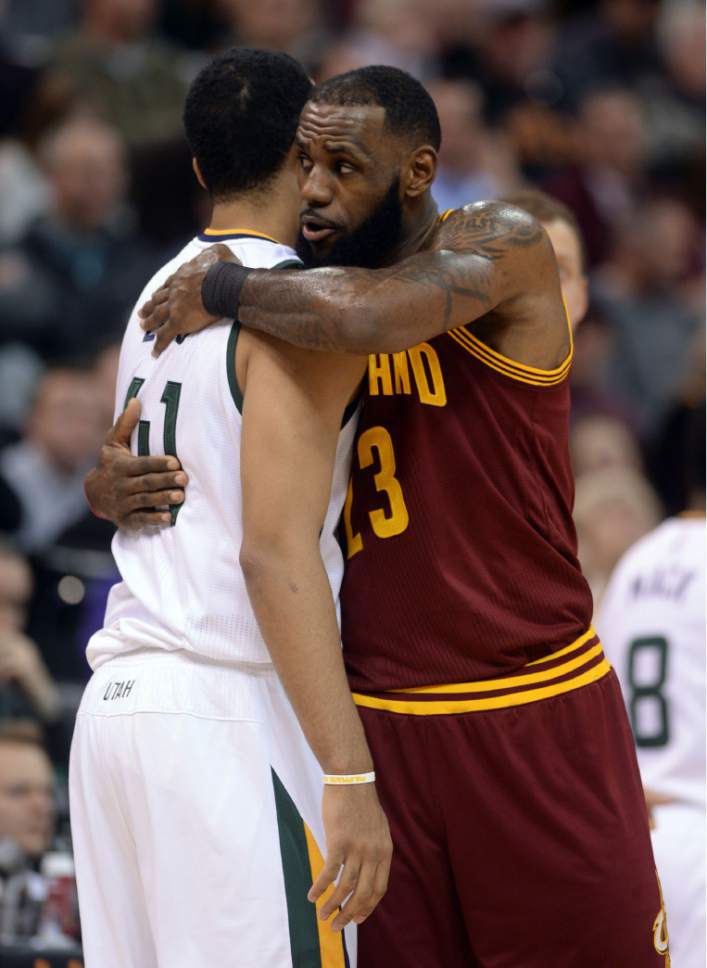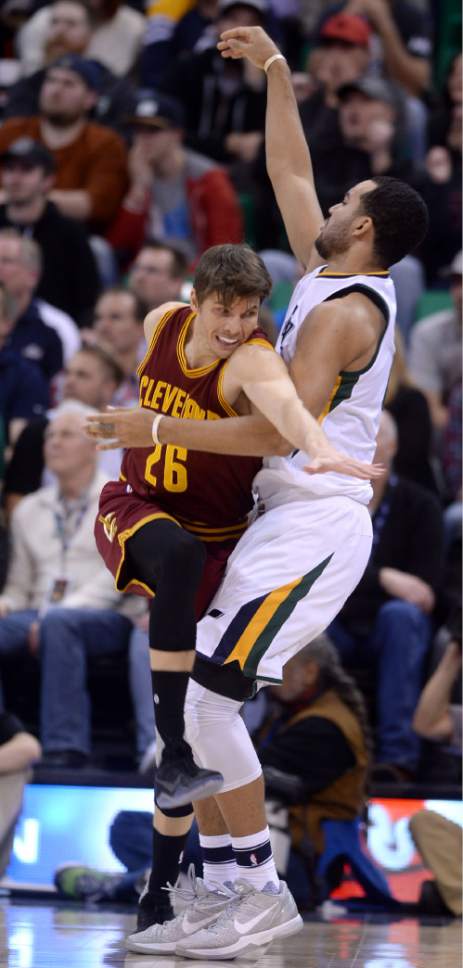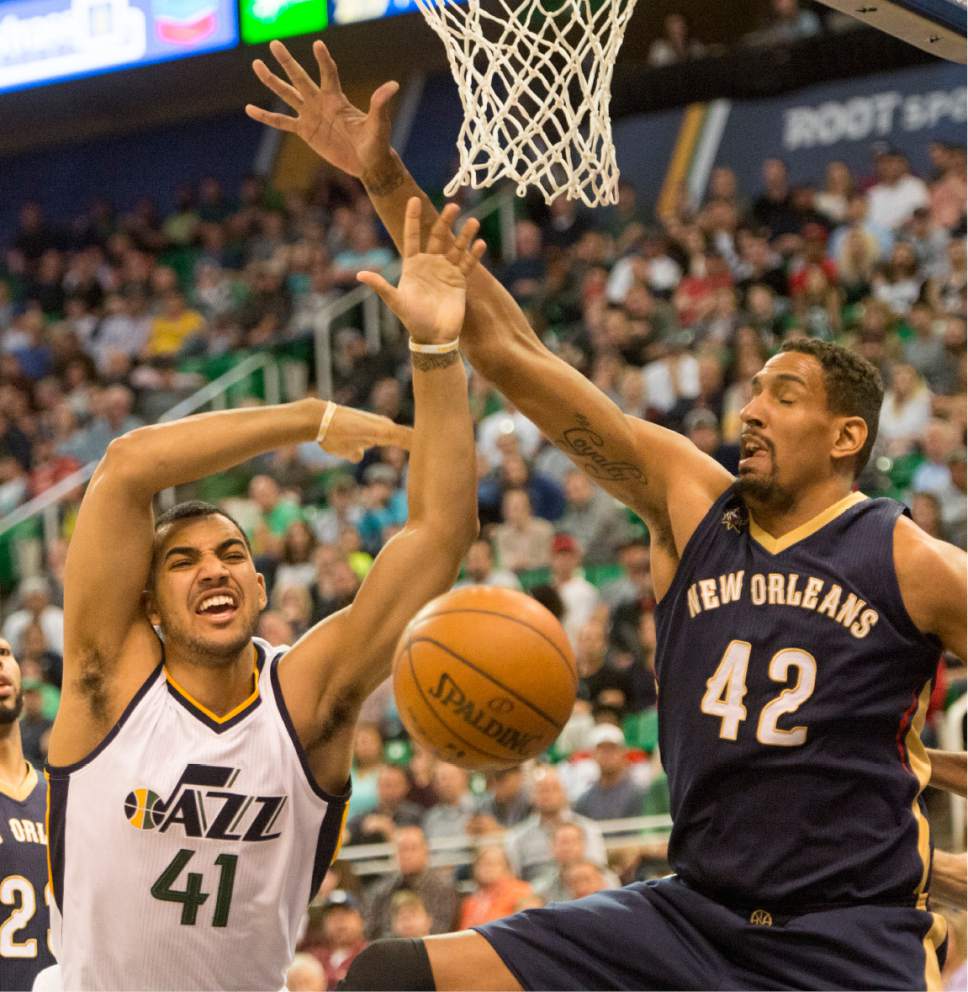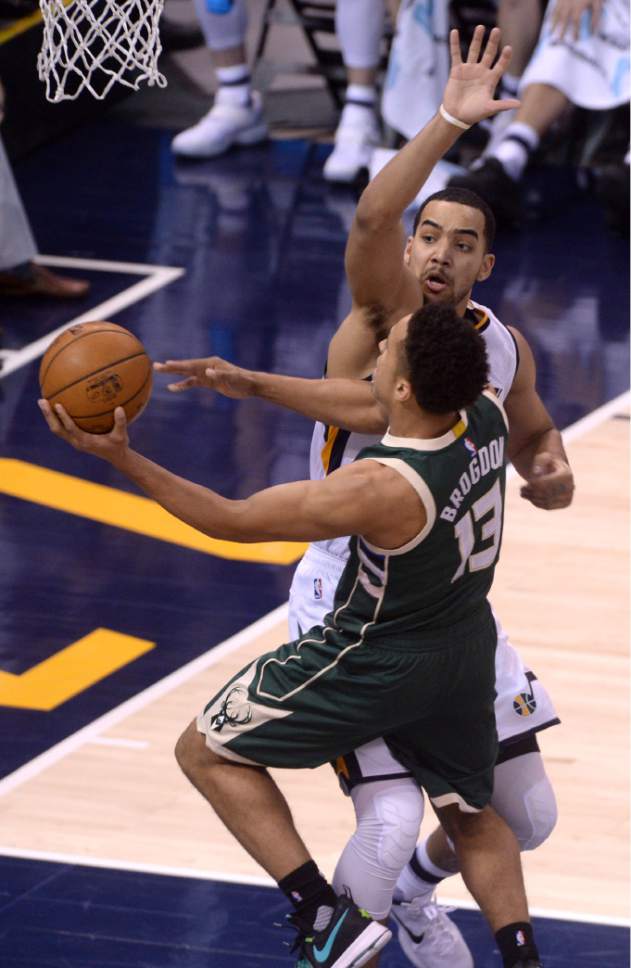This is an archived article that was published on sltrib.com in 2017, and information in the article may be outdated. It is provided only for personal research purposes and may not be reprinted.
Trey Lyles always has adapted.
When his family moved from Canada to Indiana, he left the hockey rink for the basketball court. When he attended the University of Kentucky, he learned to play small forward, even if he knew that's not where he would fit as a pro.
This year, however, the 21-year-old found himself in a new and uncomfortable position: anchored to the bench, out of the rotation.
"It's been pretty challenging," he said last week as the Utah Jazz parted ways for the summer. "I've never been in this situation … before."
What comes next for Lyles seems to be uncharted territory, too. The forward struggled in limited minutes this year for the Jazz after a promising rookie season.
Was it a sophomore slump? A regression to the mean? The product of circumstances beyond his control?
"I think he's still got a bright future in the league," Jazz coach Quin Snyder said.
The coach chalked up the disparity between Lyles' first two seasons to a few factors.
The circumstances facing Lyles in his rookie year were different. Both members of the Jazz's starting front court, Rudy Gobert and Derrick Favors, missed extended periods of time with injuries. The forward just ahead of Lyles on the depth chart, Trevor Booker, had an entirely different skill set. So Snyder relied on Lyles' shooting and playmaking on the perimeter to stretch the floor more often.
Lyles finished the year averaging 6.1 points and 3.7 rebounds over his 80 appearances.
Lyles knew things would be different coming into his sophomore season. Offseason acquisitions Boris Diaw and Joe Johnson both would take up minutes when Snyder needed a stretch-four option. But the reality of the season still was hard on Lyles.
"I tried to realize it's a process," he said. "It was hard to digest at first, but having some of the older guys say they went through the same thing made it a little bit easier."
Lyles said he learned watching those veterans.
But on the court, he wasn't often able to translate those lessons into production.
Lyles' scoring average stayed roughly the same (6.2 points per game). But he saw about 225 fewer minutes of playing time and, most concerning, he struggled mightily shooting the ball. As a rookie, Lyles connected on 38.3 percent of his 3-pointers and 46 percent of his 2-pointers. Those numbers fell to 31.9 percent and 40 percent as a sophomore.
"Lately, I've just been trying to make my jump shot more consistent," he said. "Finding the right balance, being able to make different kind of reads and kind of slow down how I was playing."
Lyles apparently was told during his exit interview that his minutes were slashed due to the additions of Johnson and Diaw.
"They went with the older guys because they felt like they could do something with them as far as making a run," Lyles said, relaying his conversation with Snyder and general manager Dennis Lindsey.
Next season, however, Lyles very well could be needed. Diaw has a team option, worth about $7 million, and could be done as a Jazzman given the number of free agency questions awaiting Utah's decision makers this summer.
Publicly at least, Snyder offered support and optimism that Lyles would be able to bounce back next season.
"Part of what happened with Trey is to be expected a little bit," the coach said. "He almost had a rookie year this year."
The coach wants the young forward to do what he's done in the past: evaluate his circumstances and adapt.
"For Trey, like a lot of young players, it's more about taking stock and looking at the year and figuring out how to use it to improve," he said. "Sometimes you have to go through some things like that in order to get a good gauge of where you are. I expect Trey to have a terrific summer, and I look forward to him leveraging some of that adversity to make himself a better player."
Twitter: @aaronfalk —
Trey Lyles
2016-17 averages
Games • 71
Minutes • 16.3
Points • 6.2
Rebounds • 3.3
FG% • 36.2
3FG% • 31.9


